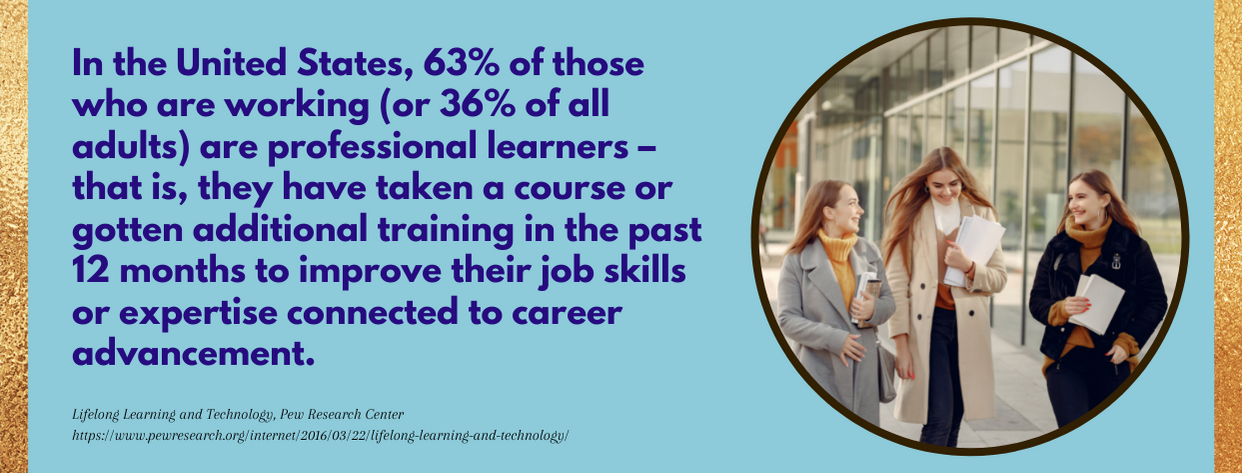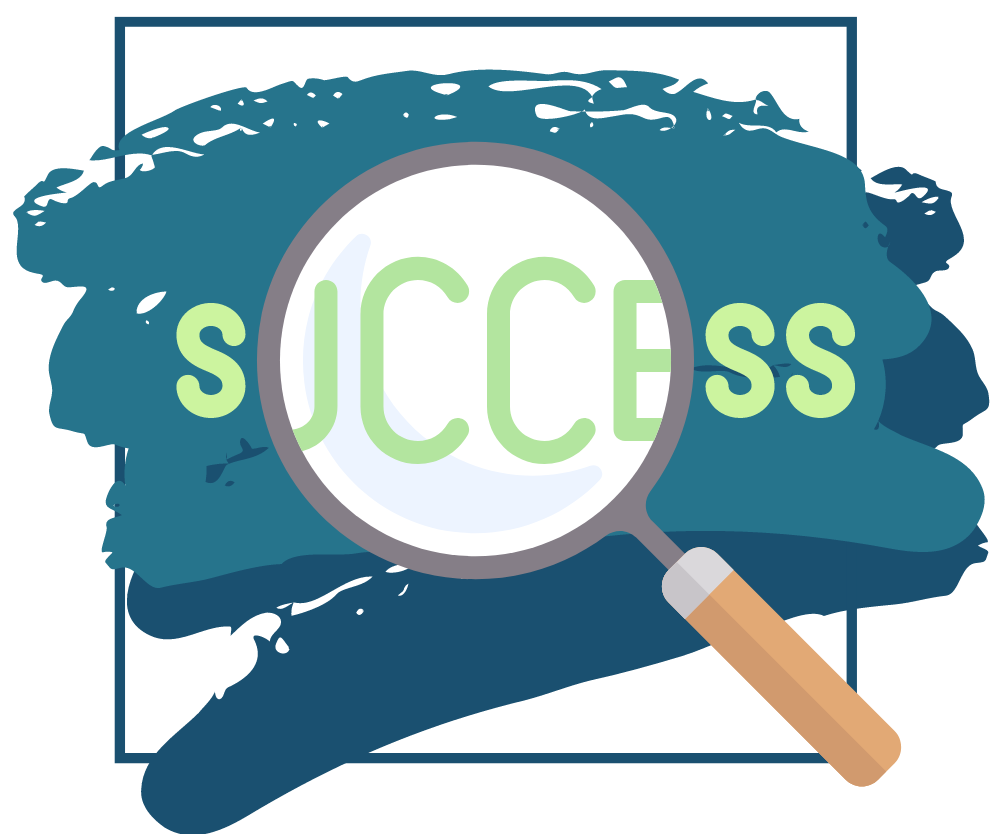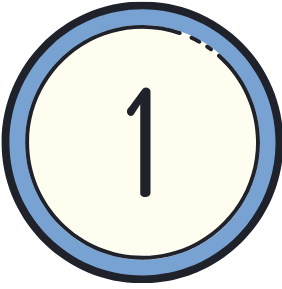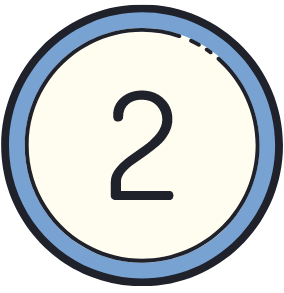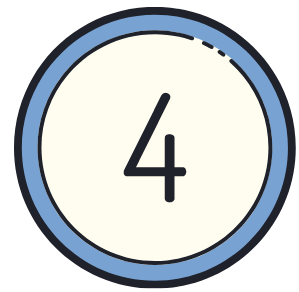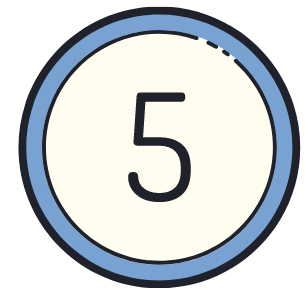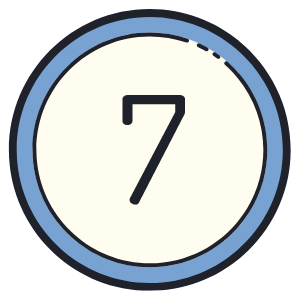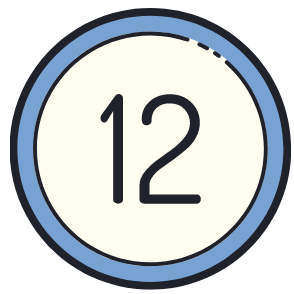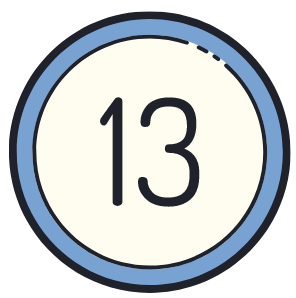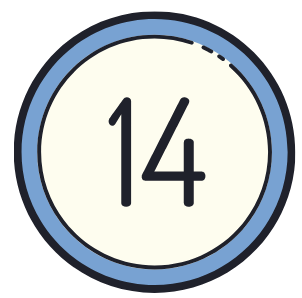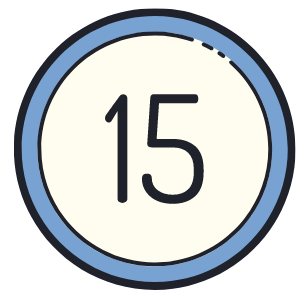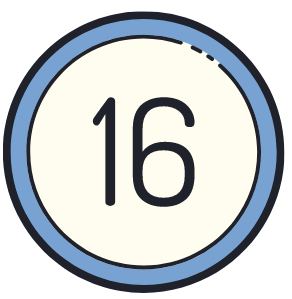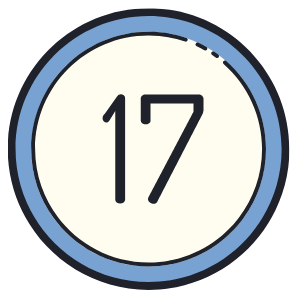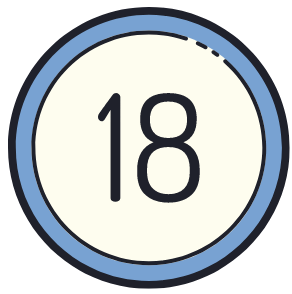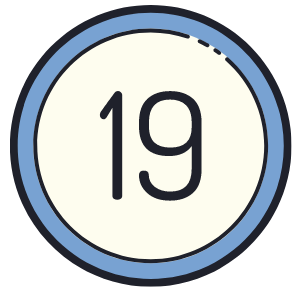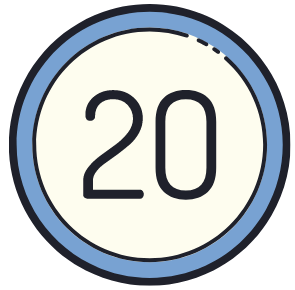Find Your Perfect School
In general, adulthood is defined as a combination of chronological age, known in contemporary times as the age of majority, and the achievement of socially dictated milestones. The age of majority differs between countries, but it’s usually between 18 and 21 years old when voting and drinking alcohol are considered suitable adult activities.
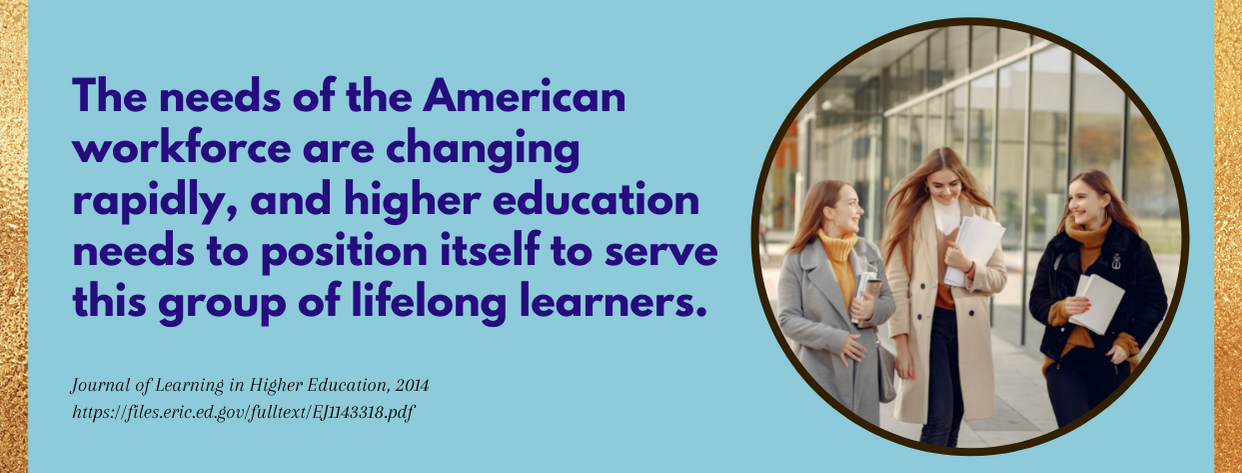
But when it comes to post-secondary education, the term “adult” has a different meaning. Adult learners are 25 years old and above, and the cohort typically includes students returning to college and earning their degrees or pursuing graduate studies.,
Nearly half of students in colleges and universities are adult learners, too, proof that many Americans value higher education at any age. Among undergraduates, 58% held down jobs, over 25% were raising children, and 38% were older than 25.
Furthermore, the diversity among adult learners is simply because adults are a diverse cohort. Many are millennials completing their degree for career advancement, but Baby Boomers are pursuing their lifelong dream. Many have lengthy résumés that reflect their rich life experiences, while many are career newbies. Many are pursuing their first degree, but some students have already completed multiple degrees.
The bottom line: Every adult returning to college has their reasons, struggles, and triumphs. You must then respect the academic journey each person takes and enjoy your own back-to-school experience. Your journey will be more meaningful and rewarding for it!
10 Reasons for Going Back to College
In a National Student Clearinghouse (NSC) report, about 36 million American adults fell into the “some college, no degree” category in 2019. Of these adults, more than 3.8 million possess the essential characteristics to return to college and earn their degrees. About 1.1 million adult learners returned to school!
Indeed, the success and progress rate among adult learners is an impressive 54%! Their success presents wonderful opportunities not only for themselves but also for their communities and country. Just imagine the contributions they can make to their respective fields, from arts and business to science and technology.
Of course, adult learners have different motivations, expectations, and aspirations than their younger counterparts. Even their preferred colleges are different, with community colleges being the most popular. Most last attended a community college and then chose to enroll in one, too, as adult learners. Nearly half earned their associate degrees from community colleges.
Public institutions are also more popular than private and for-profit institutions due to cost considerations. Many also choose online learning for its convenience concerning their personal and professional commitments.
But what motivates adults to return to college and earn their degrees, whether it’s their first or second, perhaps third, one? While the reasons differ, surveys have shown that adult learners are primarily motivated by career advancement. The knowledge and skills learned must then align with the demands of the workplace and job market.
Let’s look in greater detail at the reasons why going back to college makes sense in many respects. These reasons apply to all adult learners, from degree completers to doctoral students.
#1 Increase Your Job and Earning Potential
In a society that values higher education, the more advanced the degree, the more likelihood of higher earnings and lower unemployment risk. In a BLS study, individuals with some college but no degree earned a median weekly wage of $935 and had a 3.5% unemployment rate. But persons with a bachelor’s degree earned a higher wage ($1,432) and a lower unemployment rate (2.2%).
Indeed, returning to college and earning your degree has financial benefits! Even when you’re in your 40s or 50s, earning an advanced degree or a professional certification can open doors of opportunities for promotions. Employers will be likely to look at your résumé and consider you for the job if you have an advanced degree, too.
#2 Start a New Career
Many adults find that being in their present career doesn’t bring them happiness and fulfillment, and it can happen in their 40s or 50s. The passion and satisfaction that was there when you started might have waned significantly if it was there in the first place. You may also have realized that there’s another career path that will bring better financial security.
But your current skill set isn’t aligned with your new career choice! This is where returning to college comes in, whether you complete your bachelor’s degree, earn a graduate degree, or get a professional certification. You then have a new set of skills that translate to better competitiveness in the job market.
Many adults also consider trade training or tech-voc training even with an associate or a bachelor’s degree! The trade training is the first step toward a high-paying trade job, such as a commercial pilot or air traffic controller.
#3 Update Your Skillset
In rapidly evolving workplaces, employees must be consistent in updating their skill sets to remain relevant! The use of information and communication technology emphasizes the crucial need for skills updating. Even in non-technology industries, employees are well-advised to meet the ever-changing skills in sales leadership, people management, and creativity.
The pandemic shone a spotlight on employers’ need to develop their in-house pool. In a SHRM study, 52% of the current workforce must learn new skills to become effective and efficient at their jobs. One in three skills in sales, finance, and IT have become obsolete since 2017, too.
The bottom line: Whether you’re staying in your current job or looking for a new career, updating your skillset has its benefits!
#4 Boost Your Confidence
Imposter syndrome isn’t just in your mind – it’s as real as can be! It’s the deep-seated feeling of incompetence on the job, often combined with the notion that one’s success is because of luck instead of skill. It can happen to many individuals, too, from perfectionists and experts to lone wolves.
Such feelings of inadequacy can be stronger in people without an advanced degree or training, regardless of their actual work performance.
If these sound familiar, you may benefit from pursuing your college degree or professional training to overcome your imposter syndrome. Your sense of self-confidence will increase as you become more courageous in informed decision-making based on your training. You will be less likely to second-guess yourself, too.
#5 Become an Entrepreneur
While many business skills can be learned from the school of hard knocks, many more are best learned under the tutelage of teachers and in peer-to-peer interactions. This is the primary reason for the enduring popularity of undergraduate and graduate programs in entrepreneurship and business administration. Students in these programs learn the ins and outs of running a successful entrepreneurial venture through case studies, hands-on training, and academic courses.
You will learn about management principles and practices, innovative business strategies, and leadership skills that will become the foundation of your success. You can also choose from several concentrations depending on your planned entrepreneurial, such as retail management or small business management.
#6 Financial Capacity Is Present
When you enrolled in college, you may have been on shaky financial ground, so you eventually stopped. But after years of working, perhaps saving money, you are finally ready to return to college with sufficient financial capacity.
This is a valid reason considering that student debt is a societal concern that worsens with each passing year. The estimated average debt for every borrower was $37,718 in 2021, and it can be a crippling debt for many borrowers, too.
With your well-paying job, you may now be able to pursue your desired field of study without worrying about getting student loans. You may also have more resources, such as an employer program that shoulders part of your tuition.
#7 Pursue Personal Growth
Being a college student regardless of your age presents many opportunities for personal growth. You will learn many new skills and sharpen old skills, from time management to communication skills. Your academic journey is also an excellent source for learning new knowledge and skills.
Don’t hesitate to consider college even when in your 30s, 40s, and 50s because each phase in your life presents wonderful opportunities for life-changing events. You may yet surprise yourself that the personal fulfillment that has been lacking in your life started the day you went back to college!
Plus, you will find plenty of networking opportunities that can lead to professional leads and life-long friendships. Just being out there in the world instead of being limited to your family, workplace, and community can be liberating, too.
#8 Gain a Sense of Accomplishment
Adulting is hard, and it can be due to the feeling of being stuck in a rut. Perhaps you can consider going back to college and earning your degree to set a challenge for yourself. You will look forward to the days when you’re learning new things, interacting with your teachers and classmates, and living in the present.
Of course, there’s also the sense of accomplishment that comes with earning your degree! Regardless of whether it will make a difference in your career or not, your feeling of personal satisfaction is worth it.
#9 Become an Inspiration
Parents whose children doubt the value of a college education may want to set an example. By returning to college, you may also encourage your children to pursue higher education at any age. Walking the talk is also definitely better than just talking!
#10 It’s Not Too Late
Many adults think that taking the plunge into a life-changing decision isn’t for them because it’s too late. The “too late” aspect can be related to their age, careers, or obligations, but there’s an underlying deep-seated aversion to change there, too. Education benefits every individual no matter their age, and it’s true for a college degree and trade training.
And best of all, applying to college has become easier than ever! You can apply online, so there’s no need to fall in line. You will find that the application process and requirements are easier than when you were a traditional student. Most colleges and universities have streamlined admission procedures, too.
Most importantly, higher education is now more affordable if and when you know where to look and what to do. Student debt doesn’t have to be an ax hanging over your head!
5 Challenges Adult Learners Face and Ways to Overcome Them
Adult learners have unique challenges when re-entering college, but these are also easy enough to overcome with the right mindset, habits, and support system.
#1 Feelings of Inadequacy
The fear of having missed out is real! Many adult learners who have been away from school for several years have feelings of inadequacy in one or two aspects. These can include technological know-how, particularly with online programs, changes in the academic curriculum, and even social interactions with younger students. With significant changes in the learning experiences since their last attendance, the reentry can be jarring.
There’s also the matter of fear of failure in earning the degree, particularly with your current personal and professional responsibilities. Even the brightest students of yesteryears may be hesitant about college re-entry because the passage of time has resulted in overwhelming changes.
Many times, the most effective way to overcome these feelings is to face them head-on! You can also take practical steps in facing your fears, such as completing a placement test to assess your current academic skills. You will then choose courses that align with your current skills while also taking you one step further to your goal.
Think about taking refresher courses, taking only a few classes at first to test the waters, and seeking support from other adult learners. Many schools even offer introductory courses for critical thinking and computer proficiency designed for adult learners to transition smoothly.
#2 Bridging the Generation Gap
Adult learners will typically find themselves in programs with younger classmates, and the resulting dynamics can be initially awkward. The disconnect between generations tends to be more about the social gap, particularly in groups separated by decades. The preconceived notions about other generations can also get in the way, such as between millennials and Baby Boomers. Even the instructors have a challenge on their hands with the chronological and generational divide among their students!
Fortunately, adult learners have several ways of bridging the generation gap! You can share your accumulated knowledge with the class, a process known as generativity. Your younger classmates who are in the development stage known as identity development can benefit from your experiences. You may, for example, share real-life anecdotes and cases related to the topic at hand, so abstract concepts become more concrete ideas.
Some programs attract mostly adult learners and other non-traditional students that you can consider. You won’t have to worry about generation gaps because most of your classmates are adult learners, too. These programs are even designed with the unique needs of adult learners, such as an emphasis on workplace transferability.
#3 Keeping a Balancing Act
While Hollywood movies often depict college as a long party, the reality is that it’s a huge time commitment. Students must spend time in class, spend time studying, and complete academic requirements, even internships. No wonder the most successful college students have exceptional time management skills!
But many, if not most, adult learners have personal and professional obligations that make it more challenging to focus on their studies. The challenge of working full time while also meeting academic obligations is among the reasons for dropping out, aside from the frustration and stress.
The good news is that keeping a good work-studies-life balance is possible! You can start by enrolling in either a low-residency or 100% online program since it means studying at your own pace and time. You may also enroll in just a few classes or on a part-time basis, so you have a more flexible schedule. Your support system, including family and friends, matters, too, in ensuring that you have enough resources for your studies.
#4 Accessibility to Classes
With huge time commitments, adult learners have little to no time for traveling. Just driving from work to school after office hours can be an exhausting ordeal!
Again, low-residency and online programs are the best solutions for accessibility issues. The traveling component is one less thing to worry about as an online student. You will then devote more time to studying, thus, increasing your chances for successful completion.
#5 Cost of Education
Adult learners whose last exposure was two decades or so ago will find the current tuition prices have substantially increased since their time. Among national universities, the average cost of tuition and fees ranged from $11,171 for in-state students to $26,809 for out-of-state students in public institutions (2020-2021). The number was higher at $41,411 for private institutions.
But tuition and fees aren’t the only costs that must be considered. The costs of books, supplies, and daycare costs, as well as incidental expenses, all add up! With adult learners also paying mortgages/rent, bills, and other adulting expenses, the cost of a college education becomes even more daunting.
It isn’t surprising that you may have also thought that pursuing your college education isn’t an option! Then again, you shouldn’t be discouraged as there are many ways to overcome its financial hurdle.
You may consider online programs as these tend to have more affordable tuition costs than their on-campus counterparts, not to mention the reduced travel and time costs. Look into getting credits for your military or work experience, portfolio, and professional certifications/licenses. You may be able to get between 30 and 60 credit hours, which means less tuition expense and less time spent in college.
You should also look into your eligibility for assessment exams that precede certain academic requirements. Ask the admission staff about DSST (DANTES Subject Standardized Tests) and CLEP (College-Level Examination Program).
Finally, you should always file for FAFSA even when you don’t think you will qualify. FAFSA is designed for all college students regardless of age so just file it. Tip: Use the FAFSA4caster, so you have a better idea of your eligibility for federal aid.
You must also look for scholarship and grant opportunities in your chosen college, in your community, and your place of employment. Part of your tuition and costs, including your books and supplies may be covered, which means less financial burden on your shoulders.
15 Effective Tips for Success as an Adult Learner
Keep in mind that while it isn’t easy being an adult learner, it’s also NOT an impossible goal to earn your degree! Here are 15 proven tips that will keep you on a steady path toward success.
#1 Believe in Yourself
When you believe in your capacity to achieve your goals, you’re more likely to do so. You may waver from time to time – and it’s a normal part of life – but your strong self-belief will carry the day.
Believing in yourself takes commitment, too, but it can be developed by:
- Affirm yourself every day.
- Facing your fears head-on.
- Challenging your inner critic and turning it into a force for change.
- Being prepared to win and developing the mindset of a winner.
- Taking care of your overall health.
- Encouraging others.
- Cutting off toxic, negative people from your life.
When you know your value as a person, you can more easily fend off people and situations that will hurt your self-belief.
#2 Go for Online Learning
The benefits of online learning cannot be overemphasized for adult learners, although on-campus learning has its fair share of merits, too. Online programs allow flexible schedules for students with personal and professional obligations that cannot be dismissed so easily. (Here are famous persons who earned an online degree for inspiration!)
You can take a few courses as your personal and professional schedules will allow. You can study at your own pace and time, a hallmark of asynchronous learning, although some programs require synchronous classes. You can take things slow or fast depending on your learning style, academic goals, and schedule, too.
If you want to earn your degree fast, you can also choose an accelerated program. You’re not only saving on tuition and time, but you’re getting to your goal faster. Of course, the academic rigor will be greater, but if you can stick to it, the rewards are worth the hard work.
#3 Make the Right Choice in Field of Study
With your time being valuable, you must choose a field of study worth your time, energy, and money. Ask yourself, “Will my education or training result in concrete benefits to my personal and professional growth?” Think about it and make your decisions based on it.
Besides, with the cost of education, you may want to avoid skipping from one field of study to the next. You must also consider graduate outcomes, networking opportunities, and the market demand for the degree.
#4 Plan for Success
Just as it’s important to believe in yourself as a winner, you must also plan for success! No amount of self-belief can compensate for the lack of foresight. Your plan will also serve as a guide as well as a tool to keep your focus on the prize.
Planning as an adult learner should include reviewing the curriculum and its course structure, understanding the academic requirements, and setting a timeline. The clearer your plan, including its goals and milestones, the more manageable the challenges will be.
#5 Prioritize Your Responsibilities
With multiple personal and professional obligations daily, it’s tough to prioritize one over the other. Your learning is a priority, too, but it may have to take a backseat more times than you want.
What can you do then? For one thing, you must get things done according to their priority. If the assignment is due a few weeks from today, set it aside first and focus on other matters. Being present in the moment also makes sense to focus on the task and be more productive.
Of course, prioritize your learning, too! Sometimes, a few chores left undone in favor of studying for a big test is okay.
#6 Start Based on Your Interests
When your first classes align with your interests, you will enjoy them more and follow their academic requirements. Your desire to learn more about the topic will translate into completion.
Look into auditing one or two classes, too, so you can gain a general idea of what you can expect from them. Auditing means that you can attend the classes, even take the quizzes and exams, but you’re paying little to nothing for the privilege. But remember that you’re not getting any college credit even if you complete them.
#7 Time Management Is Key
Time management can mean the difference between chaos and direction. You must then adopt effective time management habits that will make every day a productive one:
- Avoid stretching yourself too far or too thin; your day consists of only 24 hours!
- Track your daily activities, find where time is being wasted, and plan to turn it into a more productive time.
- Change your behavior toward time instead of changing it or becoming frustrated by its consistency. Set a goal for each hour and then follow it.
- Use time management apps and other tools.
You must also delegate your tasks so you can focus on your studies. Household chores, for example, can be delegated to other family members. This underlines the importance of family support in both the little and big aspects.
#8 Make Your Learning Relevant
With more extensive work and life experience, adult learners see abstract concepts in a more concrete light. This means looking for the relevance of the lessons learned in the classroom concerning real-life situations. You may have to look more actively, but academic lessons typically have practical applications.
By doing so, you are more able to appreciate the real value of your education and training.
#9 Have a Dedicated Learning Space
With many distractions in your home, your studies can suffer! You should ideally have a dedicated learning space where you can study in a quiet environment. You must also set boundaries that your household members must follow, such as respecting your time when you’re in an online class. You may even place a “Don’t disturb” sign on your door for this reason. Just as important is being present not just physically but also mentally during your study time. Keep all distractions away, particularly screens (i.e., television or phone) not related to your current task at hand.
#10 Ask for and Give Help
Multitasking may sound like a great thing, but it isn’t good for your health when you’re stretching yourself too thinly. So, ask help from your family, friends, and even coworkers when you can’t be in two places at the same time. Think about asking a coworker to cover your shift, a classmate to take down notes and then return the favor, or a family member to take over dinner preparations.
Giving help is also crucial to your success in the academic environment since it can reinforce your learning curve and strengthen your network. As an adult learner, use your work experience to explain abstract concepts in more concrete terms. You may also want to ask more questions because it’s often the best way to clarify murky or vague concepts.
#11 Enjoy Me Time Now and Then
Earning a degree is a long process, and it can take the fight out of you when the going gets tough. Avoid going full steam ahead for the entirety of the semester – it’s not only practical, but it can also result in burnout.
Take a break at regular intervals when you’re studying, even when it’s in small ways like a 5-minute stretching break. Take an hour off to engage in relaxing activities, perhaps napping. Better yet, embrace silence through meditation that will rejuvenate your mind and body.
#12 Have Fun with Your Education
Adult learners tend to take less risk because of the fear of looking foolish or making mistakes. But if you let your fears take over, you won’t have fun, so each class feels like drudgery. Think of fun little ways to enjoy your classes, from pretending to be the professor to showing your cat during Zoom meetings.
#13 Enjoy the Small Triumphs
The big picture can be overwhelming when your handful of personal and professional obligations are thrown into the mix. But if you enjoy your little triumphs, you won’t be overwhelmed and discouraged.
Did you finish the lengthy assignment just in the nick of time? Celebrate it! Did your professor praise your work? Look back on it for inspiration. Did you achieve the first step in your plan? Pat yourself on the back. These small triumphs become the biggest inspiration when you’re down and seemingly out.
#14 Focus on the Long-term Benefits
Short-term pain for long-term gain! Focus on the benefits of gaining advanced training instead of the short-term inconveniences, such as catching up on work or missing family occasions.
#15 Keep an Open Mind
Nobody has a monopoly on knowledge and skills, not even when you’re considered the expert in your office or field. Keeping an open mind while also having no attachment to things is key to success as an adult learner. You will find that the world is full of knowledge that brings amazement, wonder, and awe even to the most jaded mind.
Not all these tips apply in your case since each adult learner has unique circumstances. But if you think more about these tips, you may realize their practical applications in your student life.
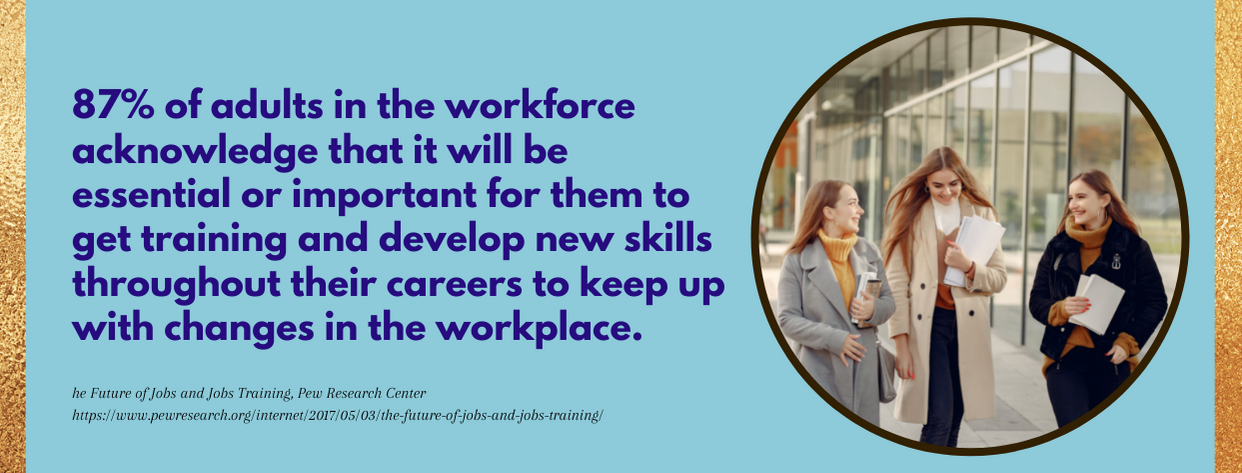
20 of the Best On-campus and Online Resources for Adult Learner Success
Adult learners have similar access to learning resources, including services, tools, and apps, as their younger counterparts. But easy access is a different matter to full maximization! You must then consider how you can take the fullest advantage of what these resources have to offer in your unique case.
These resources are divided into on-campus and online resources, and all are available for use whether you’re an on-campus or online student.
On-campus Resources
Teachers/Professors
The best resource for your academic success is right before your eyes – your teachers! You shouldn’t hesitate to ask them questions about the coursework, including its expectations, and ask for advice. You will find that they are invested in your academic success as much as you are and, thus, are willing to extend a helping hand.
But be sure to do these things within office hours! You must respect their time and effort, so keep your questions and request assistance to relevant matters. Professionalism is key in maintaining a good student-teacher relationship, particularly at the college level.
The best time to ask questions is during the class sessions because it will also benefit your classmates. You can ask questions, too, via email or chats, so there’s a record of your conversations for future reference.
Financial Aid Office
Cost is a significant challenge for adult learners and, thus, the financial aid office quickly becomes their friend. Indeed, the ease of access and availability of financial aid should be among your first considerations when choosing a college! If possible, you must look into the available financial aid and its eligibility requirements even before receiving your admission letter.
The Financial Aid Office is also an excellent resource not just for exploring your options in student aid, including on-campus and external scholarships, but also:
- Getting relevant advice on student loans
- Getting helpful assistance on completing and qualifying for the FAFSA
- Getting guidance on sound money management
- Obtaining referrals to scholarship and grant opportunities
- Looking for jobs on and off-campus
You may also want to keep in touch with the office throughout the academic year, so you’re updated on new developments.
Library
Even in the Internet Age, where knowledge and skills can be learned online, the brick-and-mortar library is still the best place for getting information! This is because not all books, journals, and magazines have been published online in their full form, among other published content. Examples include old manuscripts, scientific papers, and classic anthologies.
Indeed, historians and researchers still turn to the library when looking for information from the pre-computer days. There’s also the fact that it may not be as easy to check the truthfulness of the information presented on online sites.
Besides, libraries are great places to study because of their peaceful and quiet environment! You have easy access to a wide range of authoritative materials, including the recommended textbooks. You may even find networking and socialization opportunities within their hallowed halls.
Tutoring and Mentoring Services
Many colleges and universities offer free tutoring and mentoring services designed to assist students in achieving academic success. Ask about these services as soon as you’re enrolled so you can immediately access them in the near future. You will find them vital to your success because of the overall difficulty of college life.
Furthermore, while some of your classes may be a breeze, the others will not be easy to tackle. The reasons can range from the difficulty of the material itself to how it was presented, but you will benefit from these services.
Child Care Services
Not every college has on-campus child care services for its students, so be sure to ask before applying for admission if these services are crucial to your success. Keep in mind that child care services are a fairly new resource, so manage your expectations.
There are more than 1,500 institutions of higher education that offer on-campus child care services to students and faculty, and these offer varying levels of service. These include Albany Medical College, American University, and the University of Indiana Bloomington. Be sure to ask about the hours and rates since these will have an impact on your schedule and finances.
Health Services
Colleges and universities are cognizant of the importance of their students’ physical and mental health for both academic and life success. For this reason, health services are offered on-campus and online, and these are designed for easy access for students. Many health services are even available on a 24/7 basis!
Aside from the treatment of injuries and illnesses, your school’s health services office may also provide services including:
- Over-the-counter and prescription medications, including allergy shots
- Routine lab testing, including radiology and imaging services
- Routine and travel vaccinations
- Nutrition and exercise counseling
- Gynecological services
- Dental referrals
- STI and HIV testing
- Eye health services
- Limited psychiatric services with specialist referrals, when needed
Many of these services are free or included in the tuition fee, so be sure to avail of them whenever you can.
Writing Center
Writing essays and research papers are an integral part of the college experience. But you may not be as strong a writer as you want or as expected by your professors. This is where getting the assistance of the writing center comes in truly useful in your academic success!
The staff here will extend valuable assistance for a wide range of writing-related issues you may be encountering. These include writer’s block, creating a cohesive outline and proofreading your work, even gathering research for your materials. You can also enhance your ability to write critiques, creative essays, and research papers.
Your writing ability will be put to the test during exams and quizzes and for your thesis or capstone research project. Your culminating work will be judged based on its form and substance, and it helps if you’re a strong writer.
Student Organizations
Many schools, such as The University of Memphis, offer adult student organizations designed to address the unique needs of adult learners. These offer opportunities for social interactions, professional networking, and student support that complement university-led services. These can include forums, social and cultural events, and career services that give adult students the opportunity for personal and professional growth.
But don’t limit yourself to these adult student organizations either! Your college experience will become more meaningful and enjoyable when your circle of friends includes younger students. You’re bringing your extensive life and work experiences to your friendships while also learning from the younger generation.
Career Services
The career services office assists students in learning persuasive interview skills, writing effective resumes and cover letters, and connecting with employers. These are available for adult students whether they already have existing jobs or transitioning into the workplace after graduation. Your job hunting activities will likely be more productive because of these services.
Many of these offices are one-stop career resources that use traditional and digital tools in assisting students with their career aspirations. Their services are typically personalized to the unique needs of each adult student and, thus, increase the chance of success for viable employment. Many also have an on-demand format so adult students can access the services based on their specific interests and their own time and place.
Information Technology Department
Colleges and universities may also offer technical assistance on information technology issues encountered by students in their academic work. The service itself may be offered to on-campus and online students and done in person or through the Internet.
These services can include instructional support, network and communications, and media services support. For online students, extensive support is available for the school’s specific learning management system, such as Canvas or Blackboard. Since your success partly depends on your capacity to use the LMS, you must not hesitate to avail of IT support services. Sign up for the technology training on MS Suite and other apps if it’s offered.
Online Resources
Open Culture
Open Culture offers excellent resources, including audiobooks, language lessons and online courses, and textbooks and e-books. You can learn from recorded lectures conducted by expert professors from many of the world’s prestigious universities. You may also watch documentaries and world films that give unique perspectives on a wide range of topics.
Check out the “Textbooks” section since it contains more than 150 books by renowned scholars in subjects ranging from arts and art history to business management and physics. These are all free of charge, too, and the exceptional quality and relevant usefulness of these resources make them even more valuable. You can also verify the authoritative quality of the resources through its links, share the resources among your peers, and receive updates on new content.
Project Gutenberg
With more than 46,000 e-books on free access, Project Gutenberg is among the most extensive resources for adult learners. Keep in mind that it’s a volunteer effort to distribute literary works so you can also make contributions. This way, the online library continues to grow.
Take note, however, that there are no e-books and books in the online library with existing copyright protection. But if you’re looking for classical literature easily and more efficiently than visiting the library, then Project Gutenberg is the best place. Works by Shakespeare, Dante and Poe can be found here.
GradeSaver
Harvard University students are behind the free study guides on GradeSaver, if you want an informal assurance of quality. Touted as among the Internet’s top classic literature sources, it offers a wide range of content, including:
- Free study guides on plays, novels, and poems, even films that include an overall summary, chapter-by-chapter summary, and essays on the characters and theme. Quizzes for these works of art in printed form are also available.
- Q&A where you can ask questions and receive answers from educators and students.
- Writing resources that provide useful tips on becoming a better writer.
You may also benefit from the essay editing service, but it comes with a fee. There are also paid membership plans for college application essays and literature essays.
Study Guide Zone
Yet another free online service is Study Guide Zone that provides undergraduate and graduate students with tools to ace their exams. These tools can be used for preparing for several standardized tests for admission to college and licensing examinations. These include SAT, ACCUPLACER, and ASVAB.
Their effectiveness as study tools rests on the way you use them! You must keep in mind that there’s no guarantee that the questions on these practice tests will be in the actual test. You must think of the practice tests just as their name implies – for practice purposes only.
Quizlet
Who says studying for exams must be serious business all the time? Often, the best way to make learning more interesting is to make it more fun – and that’s where Quizlet comes in. The free online resource offers an impressive range of study games, live quizzes, and flashcards that make studying more productive because it’s more fun.
Quizlet is more of a memorization tool, but its strongest feature is that it allows users to create customized sets of terms in various modes. The Play study mode, for example, combines learning with playing, a good way of destressing while still studying.
Microsoft Teams
Trust Microsoft to be at the forefront of educational tools, and its Microsoft Teams is among its best tools. Microsoft Teams is a project management tool that can be used for education-related purposes. These include communicating with your classmates and teachers, planning classwork, and managing an entrepreneurial venture as a capstone project.
Indeed, Microsoft Teams has a more impressive breadth and performance in its features that few other collaborative tools can match! Customize it to your unique needs and integrate with other Microsoft universe apps, including MS Office. The integration options are so many that there’s a set that will appeal to your specific demands.
Trello
Yet another top-rated collaboration tool is Trello, which organizes specific projects in their customized boards. You can get information on the current project being worked on, the persons working on specific tasks, and the project’s phase. Think of it as getting a comprehensive view of collaborative projects in a few minutes and then making informed decisions.
Users widely praise Trello for its user-friendly, intuitive features that make it easy to use even for beginners. The drag-and-drop task management interface provides a 3D visual of the work in progress in all stages of the collaborative project. There are built-in workflow automation tools and options for extended functionality.
Zotero
Keeping a list of references in a systematic and easy-to-access manner can be a headache! With Zotero, fortunately, the job becomes easier since references can be kept in separate collections. The digital solution also allows for fast, convenient, and effective compilation, organization, and transfer of references between projects. The search and tag feature is useful for defining and redefining sources that, in turn, allows for quick location of sources.
Zotero is useful in managing academic sources for thesis and research projects, among other scholarly works. You can add citations with a few simple keystrokes, create a Works Cited page, and even switch between two citation styles quickly. You may also use its library system to manage several research projects in one go, thanks to useful features like adding items through DOI, ISBN, and PMID.
Desmos Graphing Calculator
While the old-fashioned, handheld calculator has its uses, the Desmos Graphing Calculator can be your best friend during your math coursework. You can plot numerous equations, including parabolas and lines, and create real-time graphs from sets of data, including logs, exponents, and inequalities. You may also use it in solving precalculus and calculus problems that may have escaped your understanding until these were presented in graph form.
Indeed, if you must have only one math tool, then the Desmos Graphing Calculator should be it! Since it’s designed with HTML5 technology, it’s also compatible with mobile devices, laptops, and desktops. (A web browser is all that’s necessary, and it’s a free resource to boot) You can also save your work, edit it, share it with your classmates and instructors, and even embed it in your blog.
Better Explained
Being bogged down in the details of math problems can be a bummer! But if you have a big picture perspective, you will likely appreciate the equation and understand its details better. Your math skills will also be better with the visual aids that come with the detailed explanations.
Better Explained has been featured in Science Magazine, National Academy of Sciences, and Scientific American in terms of credibility. It’s even tortured as assigned reading in university courses! Better yet, you can buy its related textbooks, so you have an easy reference.
Your success as an adult learner doesn’t have to rest solely on your shoulders, too. You must also have a strong support system that will carry you through the most challenging time of your academic journey. Your sense of humor will also be useful whenever the tough parts threaten to undermine your self-belief.



